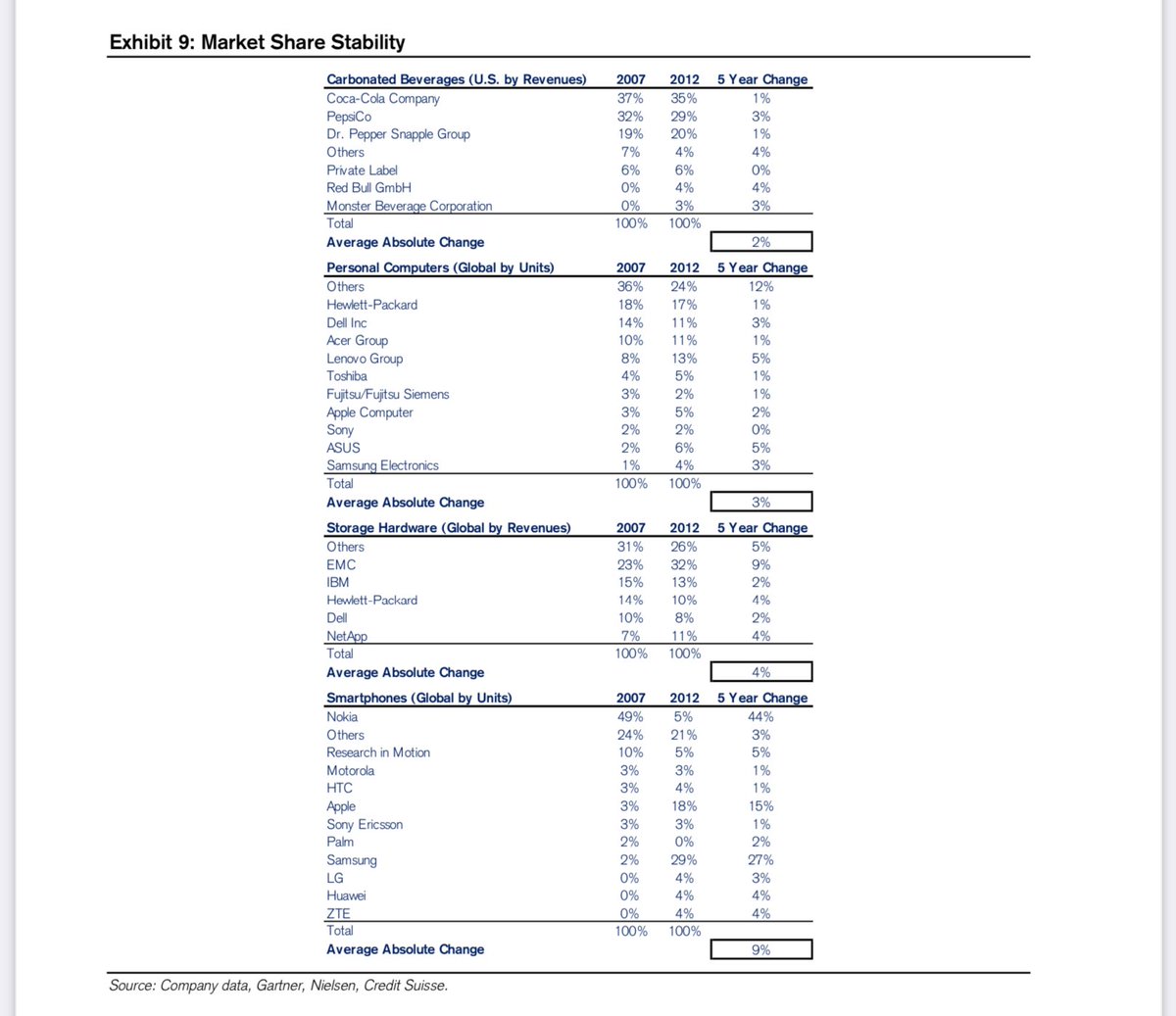I like this mental model of "ground states."
Tobi Lutke mentioned it yesterday on "Invest Like the Best."
It's from physics and the definition is -- the lowest energy state of an atom or other particle.
In other words: what do you do when you don't have energy?
Mini-[THREAD]
Tobi Lutke mentioned it yesterday on "Invest Like the Best."
It's from physics and the definition is -- the lowest energy state of an atom or other particle.
In other words: what do you do when you don't have energy?
Mini-[THREAD]
2/ Tobi said his "ground state" was consuming information and learning how to make better decisions.
A lot of people's ground states are watching Netflix or if you're reading this, maybe it's scrolling Twitter? 😉
Another way to phrase this: how do you spend your free time?
A lot of people's ground states are watching Netflix or if you're reading this, maybe it's scrolling Twitter? 😉
Another way to phrase this: how do you spend your free time?
3/ This feels like the essence of competitive advantage.
If one person's ground state is personal growth while another's is watching Netflix or going on Instagram, the divergence, in the long run, will be huge.
The next question then is: can ground states be learned?
If one person's ground state is personal growth while another's is watching Netflix or going on Instagram, the divergence, in the long run, will be huge.
The next question then is: can ground states be learned?
4/ It feels like there is a good amount of innateness here. But I think it comes down to what you find interesting.
If you really enjoy learning about something, it can become a ground state.
When you're doing something you find super fun, you don't have to force focus.
If you really enjoy learning about something, it can become a ground state.
When you're doing something you find super fun, you don't have to force focus.
5/ Without the need to expend energy, an activity can become a ground state. It's the perception of "expending" that's key. An activity can be a joy for one person and a drag for another.
This comes to the "follow your passion" vs. "get good at something" debate.
This comes to the "follow your passion" vs. "get good at something" debate.
6/ This relates to career advice. Should someone follow their passion or master a skill and then come to enjoy the skill?
My intuition is that it's harder for the latter crowd to turn that skill into a ground state.
What do you think?
My intuition is that it's harder for the latter crowd to turn that skill into a ground state.
What do you think?
7/ Here are some closing thoughts on some ground states that would be great for investors:
- reading 10k's
- analyzing financials
- reading business biographies
- journaling
- consuming information
- understanding business models
What else?
- reading 10k's
- analyzing financials
- reading business biographies
- journaling
- consuming information
- understanding business models
What else?
• • •
Missing some Tweet in this thread? You can try to
force a refresh


















